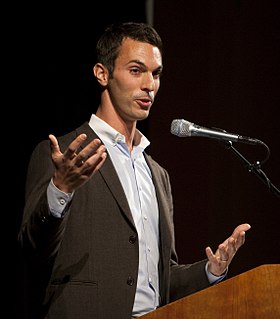A Quote by Phil Karn
It seems that 'national security' is the root password to the Constitution. As with any dishonest superuser, the best countermeasure is strong encryption.
Quote Topics
Related Quotes
So, in 1993, in what was probably the first salvo of the first Crypto War, there was concern coming from the National Security Agency and the FBI that encryption would soon be incorporated into lots of communications devices, and that that would cause wiretaps to go dark. There was not that much commercial use of encryption at that point. Encryption, particularly for communications traffic, was mostly something done by the government.
We have a media that goes along with the government by parroting phrases intended to provoke a certain emotional response - for example, "national security." Everyone says "national security" to the point that we now must use the term "national security." But it is not national security that they're concerned with; it is state security. And that's a key distinction.
The National Security Council assists the president by ensuring that he receives the best views and options from the various departments and agencies on any given issue. The ultimate policies are, as they should be, then decided upon by the president - not by the NSC staff or the national security adviser.
Back in March, before Donald Trump secured the Republican nomination for president, a group of national security heavyweights signed an open letter that called Trump fundamentally dishonest and utterly unfit for the presidency. Now, two days after Trump's victory, some in the national security establishment are wondering whether to return to the fold.
To me, freedom of speech and debate are necessary inputs in solving any of our nation's problems, from homelessness and economic inequality to banking, the environment, and national security. Freedom of speech is what Larry Lessig would call a 'root' issue; working on free speech is striking at a root issue.
National security is a really big problem for journalists, because no journalist worth his salt wants to endanger the national security, but the law talks about anyone who endangers the security of the United States is going to go to jail. So, here you are, especially in the Pentagon. Some guy tells you something. He says that's a national security matter. Well, you're supposed to tremble and get scared and it never, almost never means the security of the national government. More likely to mean the security or the personal happiness of the guy who is telling you something.


































